Peter Robinson’s Uncommon Knowledge brings three authors together, Tom Holland, Stephen Meyer and Douglas Murray:
A key consideration:

vs, this notorious poetic assertion:
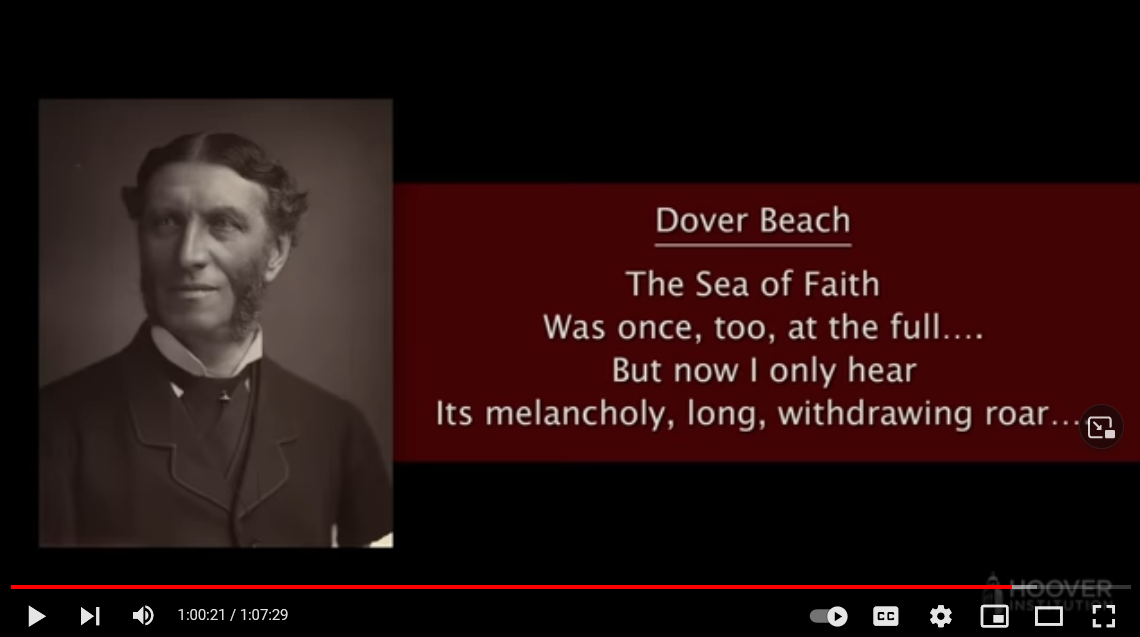
Of course, both of these reflect the rise of the skeptical mindset among the educated elites, the modern inferior good that stands in for the cardinal virtue, prudence. So, we cannot escape the epistemic challenge, what it means to know and to what confidence, especially as regards roots of reality and our place in reality.
(Where, trivially, for any reasonably definable field, X, the claim that one knows on some warrant that there is no objective, knowable truth regarding X, is instantly self-referentially incoherent and self defeating. As this hyperskeptical claim is about X and claims objective warrant. Oops. Yes, this obtains for even morality. Which is pivotal, as our responsible, rational freedom is morally governed; yes, there are self-evident first duties of reason, to truth, to right reason, to prudence (so, to warrant), and more. Such may be seen from the very objector’s appeal to such duties in trying to object.)
I should add a telling “exchange” as faith has become a dirty word in too many minds — for, Aristotle anticipated and devastatingly pre-empted Dawkins :

Coming back, it may be fruitful, to hear Meyer in his own voice with Robinson, rather than as a somewhat peripheral member of a panel:
Where, of course, Dawkins’ assertion is relevant (and manifestly wrong):
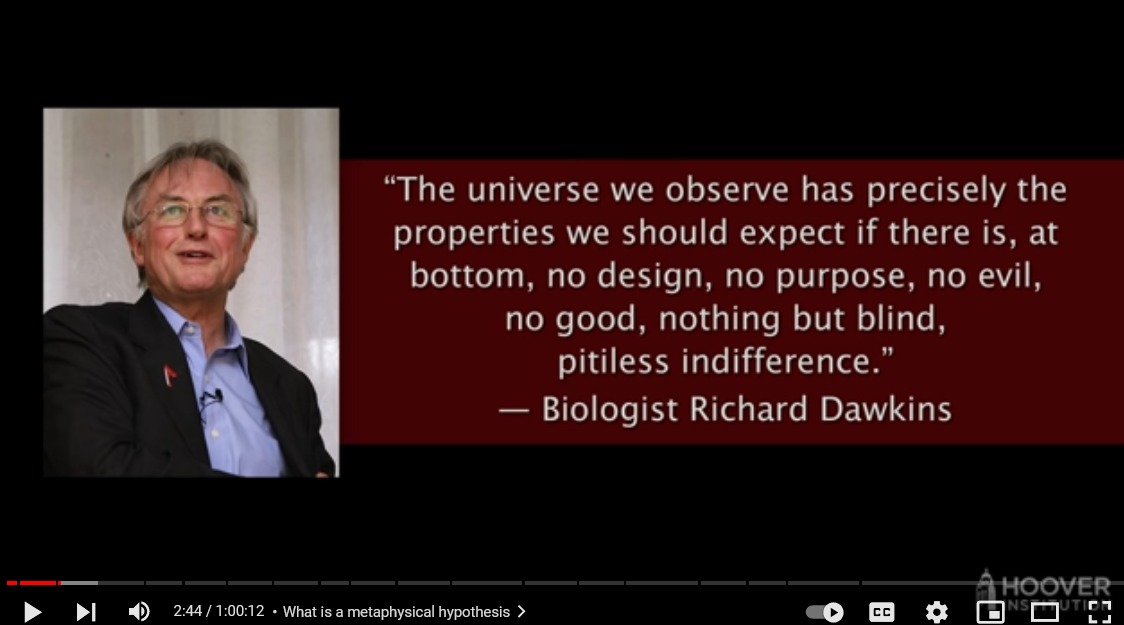
Wrong? Yes, for a world such as he suggests would instantly fall into the self referential, self defeating trap William Provine inadvertently exposed in yet another atheistical, cat out of the bag moment:
Naturalistic evolution has clear consequences that Charles Darwin understood perfectly. 1) No gods worth having exist; 2) no life after death exists; 3) no ultimate foundation for ethics exists; 4) no ultimate meaning in life exists; and 5) human free will is nonexistent
[==> key theses of nihilism. Citing the just linked IEP: “Nihilism is the belief that all values are baseless and that nothing can be known or communicated. It is often associated with extreme pessimism and a radical skepticism that condemns existence. A true nihilist would believe in nothing, have no loyalties, and no purpose other than, perhaps, an impulse to destroy. While few philosophers would claim to be nihilists, nihilism is most often associated with Friedrich Nietzsche who argued that its corrosive effects would eventually destroy all moral, religious, and metaphysical convictions and precipitate the greatest crisis in human history.” As without rational, responsible freedom, rationality collapses, Provine implies self referential incoherence. Similarly, ethical foundations include our self evident, pervasive first duties of reason: to truth, right reason, warrant and wider prudence, fairness and justice etc. Provine has given a recipe for gross (and all too common) intellectual irresponsibility.]
[He continues:] . . . . The first 4 implications are so obvious to modern naturalistic evolutionists that I will spend little time defending them. Human free will, however, is another matter. Even evolutionists have trouble swallowing that implication. I will argue that humans are locally determined systems that make choices. They have, however, no free will . . .
[–> However, without responsible freedom, mind, reason and morality alike disintegrate into grand delusion, hence self-referential incoherence and self-refutation. But that does not make such fallacies any less effective in the hands of clever manipulators]
[1998 Darwin Day Keynote Address, U of Tenn — and yes, that is significant i/l/o the Scopes Trial, 1925]
Given such a failure and its open door to nihilism, it is worth pausing to note on the importance of adequate worldview roots for even the rise of modern science as an enduring institution:
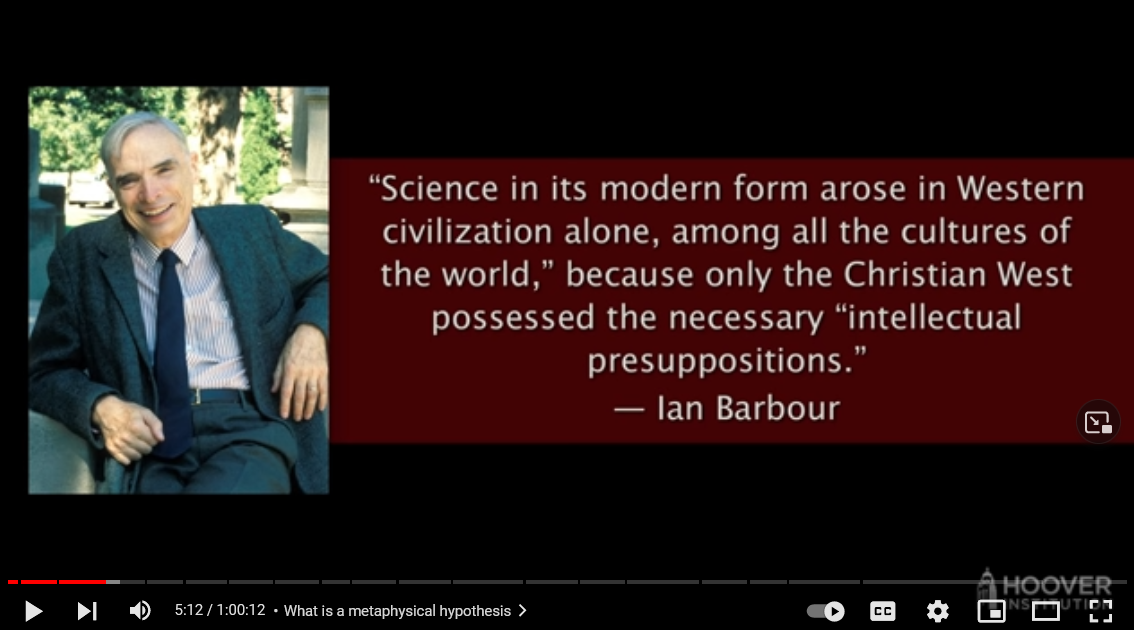
Where, too, it is worth pondering the evident sheer contingency found in the cosmos (fine tuned towards the requisites of C-Chemistry, aqueous medium, cell based life) and that of the cell itself, with its functionally specific, information rich complex, intricate organisation. So, where a natural philosopher is a scientist:
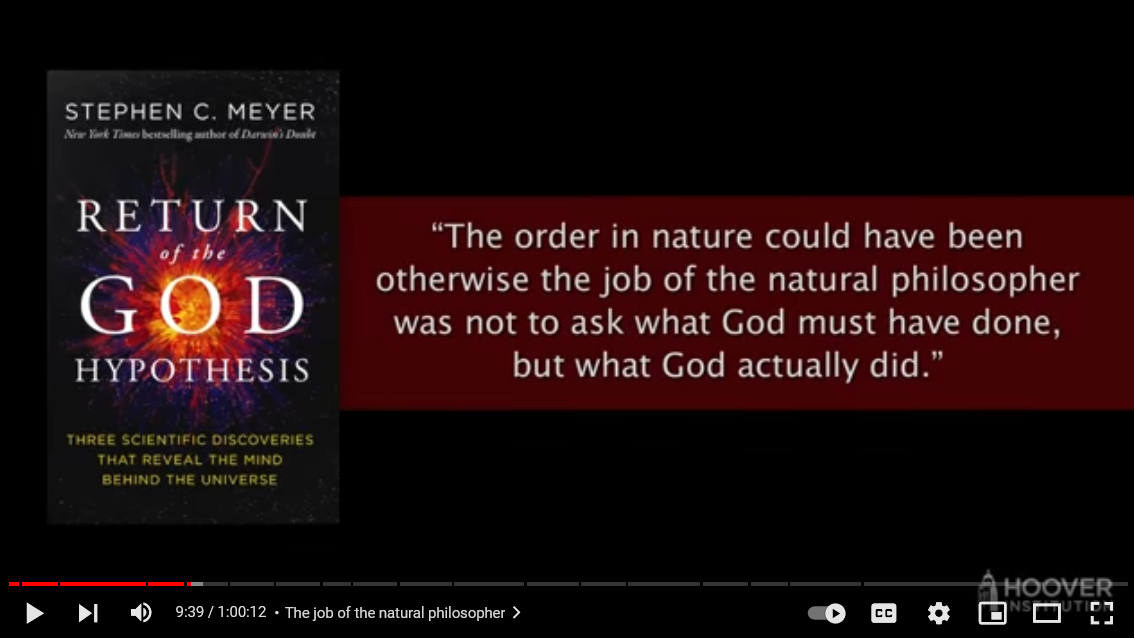
This in turn points to a theme of founders of modern science, thinking God’s creative and providential thoughts after him:
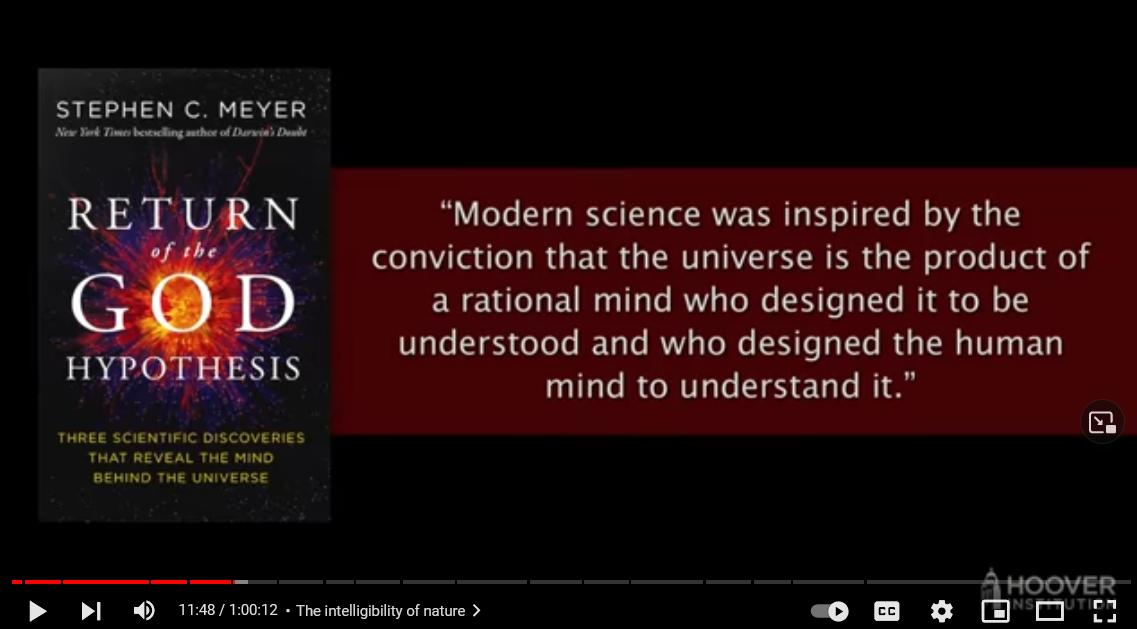
Of course, were this counter to fact, we would not find the world intelligible but might project to it a figment of our minds, undermining rational-empirical investigation. That there are many theses with that trend should give us pause.
Now, this brings us full circle to the key thesis of the modern intelligent design paradigm, that:
. . . it is reasonable and feasible as a scientific matter, to ask and investigate whether certain entities, states of affairs, contingencies etc can be marked by observable, reliable signs of intelligently directed configuration.
The answer is obviously yes (people have asked the question done the investigations and published findings . . . never mind utterly revealing, hyperskeptical denials of such publications), and the results highlight that the fine tuning of the cosmos and the functionally specific, complex organisation and associated information in the world of life are strong signs of such intelligent design. For example, here is Wallace:

His cases in point, as readily observed examples of a widespread pattern:
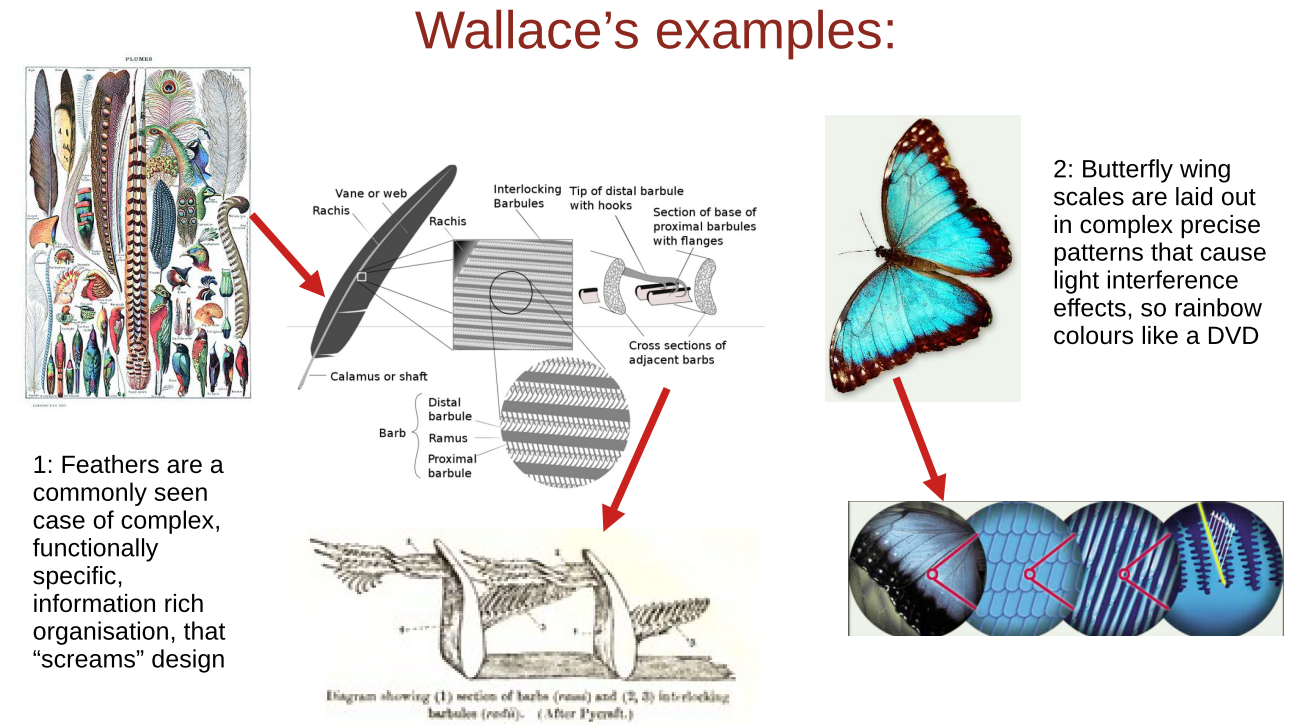
We are of course familiar with the more recently elucidated case of protein synthesis and its use of codes [which ever so many objectors hereabouts are so hot to dismiss but cannot answer Lehninger et al]:
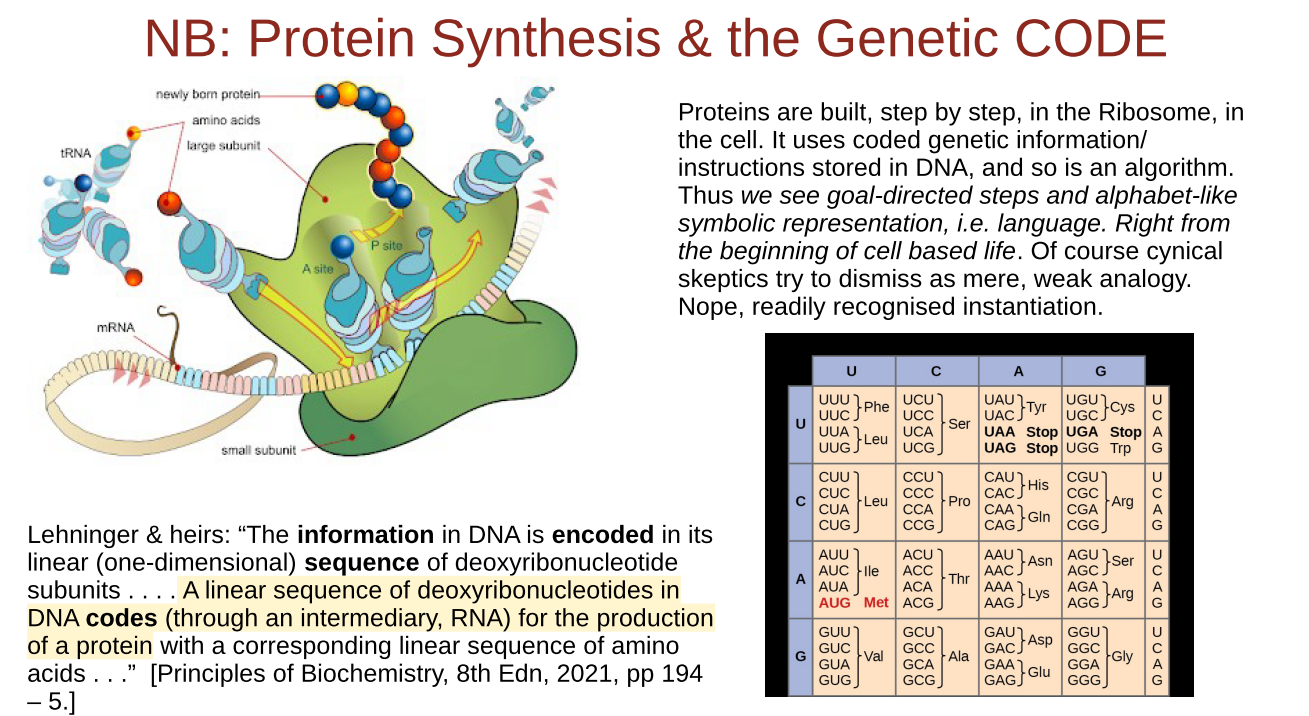
Indeed, here is more of the text, under fair use, to hammer home the point:

So, too, we must realise this was on the table since 1953:
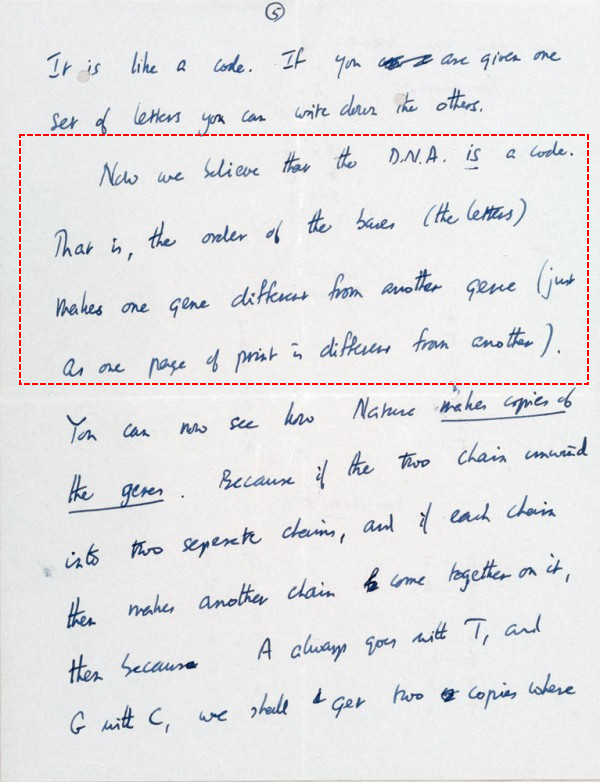
Oddly, the world of life has NOT led design theorists (and thinkers) to instantly infer to God designed life. As was pointed out by Thaxton et al in the 1980’s, design of cell based life does not in itself imply designer beyond or within the cosmos. That is an onward question.
Where, a fine tuned cosmos that sets up cell based life DOES imply designer beyond the cosmos. So, let us consider just one key consideration, from Barnes etc:
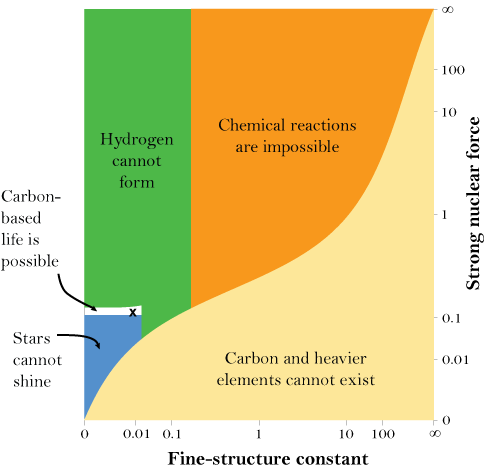
It is time for fresh willingness to consider the design inference as a scientific matter, conspiracist smears and accusations notwithstanding. END